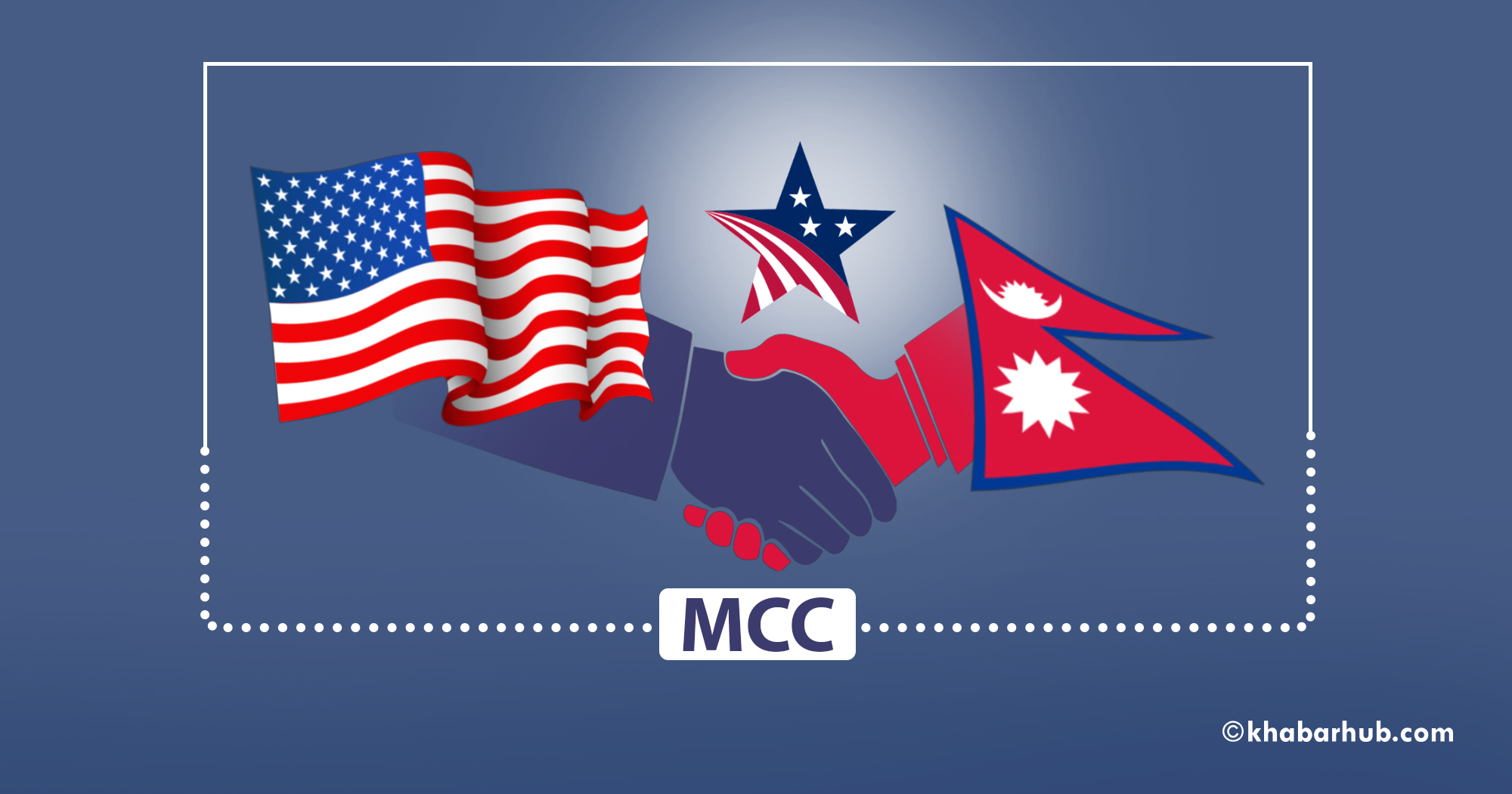KATHMANDU: Amid speculations that the government may table the widely-debated Millennium Challenge Corporation (MCC) Compact in Parliament on Wednesday, the United States feels the Compact has been “politically weaponized”.
Debating and demanding amendments in the already signed bilateral agreement could even raise a serious question about Nepal’s credibility internationally.
The United States is definitely not going to make amendments in the agreement as demanded by Nepali political leaders, and if the US official’s remarks are to be considered, they are adamant about their previous stance of “either accept it or reject it”.
But rejecting it at the eleventh hour at the behest of “external power” can be a “risk” for Nepal in the future and this can even “damage” the relationship between the two friendly countries.
The US Embassy in Kathmandu has categorically stated that withdrawing from a signed bilateral agreement would have an impact on any two countries’ relationship, asking Nepal to “follow through on its commitments.”
By saying so, the US Embassy has given a clear message to Nepali leaders that the United States has always “stood with Nepal through changes and supported the country with development aid, disaster response and preparedness assistance, health and education programs, and more.”
The MCC agreement has become a hostage to Nepal’s domestic politics, particularly the disapproval of Prachanda, Madhav Kumar Nepal and other leaders resulting in an embarrassing attitude of Nepali political leaders for short-term political gains.
Reports were rife in Nepal that US Assistant Secretary of State for South and Central Asia Donald Lu “threatened” Nepal’s top leaders, including Prime Minister Sher Bahadur Deuba, Maoist Chairman Pushpa Kamal Dahal “Prachanda”, and leader of the opposition KP Oli to ratify MCC at the earliest “or face consequences”.
The US Embassy in Kathmandu says it is disappointed with the “disinformation” on the development program that is based on “transparency, accountability, and democracy.”
A section of the civil society and some party leaders in Nepal see MCC as a part of the Indo-Pacific Strategy (IPS) despite US’repeated clarification that it has no military component or any strings attached.
“It is up to the Nepali leaders and its people to make a decision as a sovereign democratic nation,” US Ambassador Randy Berry said.
Lu’s telephone conversation with the Nepali leaders was “not a threat but a reminder” about the deadline of February 28 set by Prime Minister Deuba and Maoist Chairman Prachanda, in a letter in September 2021, to decide on the Compact.
It’s been almost five months since the commitment and the February 28 deadline is coming to an end.
A political leader, who engaged in a conversation with a US Embassy official in Kathmandu, says he got the impression that they are “concerned about the disinformation surrounding the Compact.”
The leader said failure to ratify the Compact coming under any external influence or corruption cause would be “deeply concerning and disappointing” for the United States besides being a huge loss for the Nepali people.
A section of the civil society and some party leaders in Nepal see MCC as a part of the Indo-Pacific Strategy (IPS) despite US’repeated clarification that it has no military component or any strings attached.
For instance, the United States has clearly stated that whether or not Nepal’s parliament ratifies the Compact is purely a sovereign decision for the Himalayan country to make.
The US also said that ratifying the agreement be brought to a vote so the people, through their elected officials have their say.









Comment